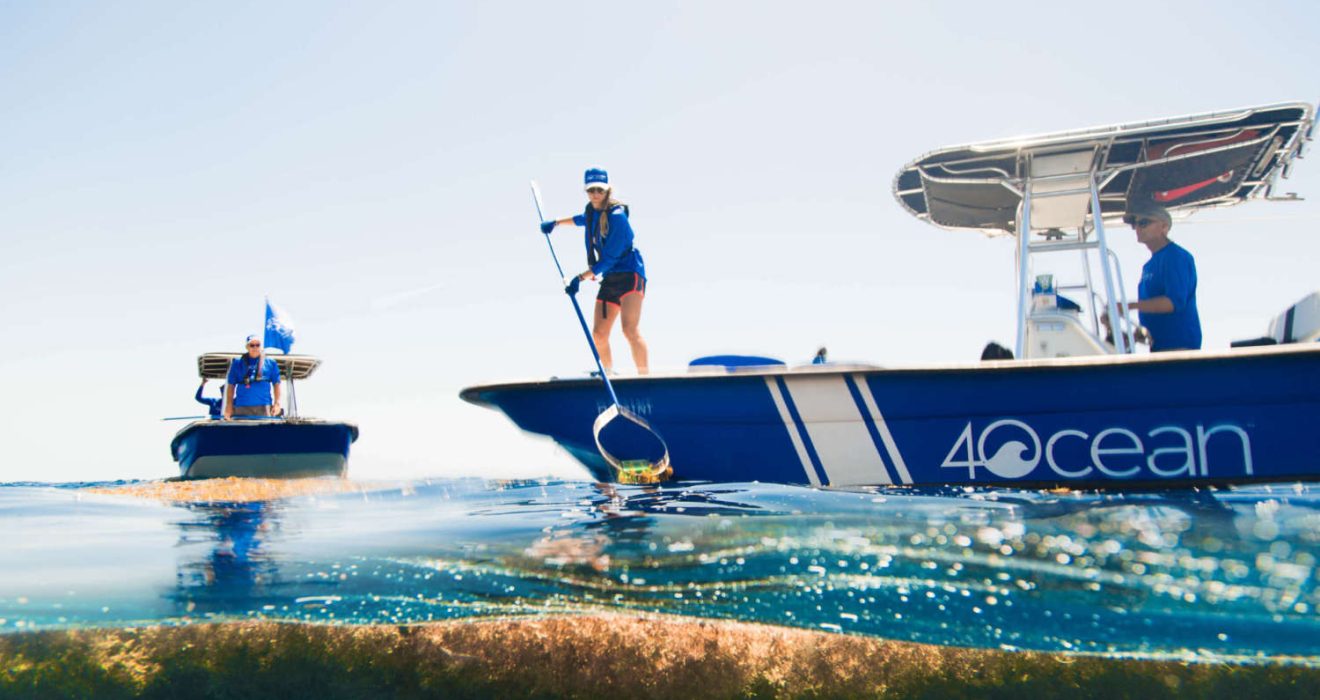In the face of a global crisis driven by plastic pollution, 4ocean has emerged as a beacon of hope, transcending conventional cleanup initiatives to embark on a multifaceted journey against the menace of ocean plastic. Recent revelations of 4ocean’s record-setting accomplishment – the removal of an astounding 30 million pounds of trash – underscore the magnitude of their commitment. This feat isn’t just about the sheer volume of waste cleared from oceans; it symbolizes a collective effort involving local captains, crews, and millions of individuals worldwide, dedicated to preserving marine ecosystems.
The urgency of addressing plastic pollution becomes apparent against the backdrop of staggering global plastic production, with a mere fraction being recycled, and the profound environmental and socioeconomic ramifications. 4ocean’s impact extends beyond cleanup, encompassing innovative corporate partnerships, upstream solutions, and a holistic approach that transcends traditional boundaries. As we delve into 4ocean’s remarkable journey, we uncover not just a story of cleanup, but a transformative narrative shaping the future of ocean conservation.
Setting Records: 30 Million Pounds Removed
At the forefront of the battle against ocean plastic pollution, 4ocean recently achieved a monumental milestone – the removal of 30 million pounds of trash. Operating in 12 locations across three countries, including the USA, Guatemala, and Indonesia, 4ocean has become a leading ocean cleanup company dedicated to ending the ocean plastic crisis. This remarkable feat was announced by Alex Schulze, 4ocean CEO and co-founder, who expressed pride in the company’s continuous efforts.
Schulze emphasized the collective impact of 4ocean’s work, involving hundreds of local captains and crew members recovering trash from oceans and coastlines seven days a week. This achievement goes beyond mere numbers; it symbolizes a concerted effort to address a crisis that poses a severe threat to marine life and ecosystems.
Multifaceted Approach: From Cleanup to Corporate Partnerships
4ocean’s approach extends beyond conventional cleanup operations. While their primary funding comes from product sales, the company has diversified its efforts through innovative programs. In 2021, 4ocean introduced the Corporate Partnerships Program, collaborating with companies to offset their plastic usage and contribute to global waterway cleanup endeavors. Brands like John Frieda, Mount Gay Rum, Nature Gnaws, and U.S. Polo Assn. have received 4ocean Plastic Neutral Certification or become Certified Cleanup Partners, illustrating a shared commitment to environmental sustainability.
Ryan Dick, 4ocean partnerships marketing manager, acknowledged the collaborative nature of their initiatives. The partnership program not only offsets substantial amounts of plastic but also emphasizes the need for a fundamental shift in the way products are designed, produced, marketed, consumed, and disposed of. It serves as a critical stepping stone towards a more sustainable future, recognizing that the plastic pollution crisis requires comprehensive solutions.
Environmental Consequences: Beyond Plastic Pollution
While celebrating 4ocean’s significant achievements, it is crucial to recognize the broader environmental consequences of plastic pollution. The world has produced an estimated 18.3 trillion pounds of plastic since the 1950s, with less than 10% being recycled. The majority, around 79%, accumulates in the environment, posing a threat to ecosystems and biodiversity.
Plastic pollution isn’t solely an environmental issue; it also jeopardizes the global economy and food security. Ocean-based industries, such as fishing and tourism, employ billions of people, contributing trillions of dollars to the global economy annually. More than 3 billion people rely on seafood as their primary source of protein. Addressing plastic pollution becomes imperative not only for environmental preservation but also for sustaining livelihoods and ensuring global food resources.
Alex Schulze emphasized the disproportionate impact of plastic pollution on poor and marginalized communities worldwide. In response, 4ocean ensures that its operations directly benefit the communities most affected by plastic pollution. Captains and crews are full-time employees living in the communities they serve, and the handcrafted bracelets that fund cleanups are made by artisans in Guatemala or Bali. This approach aligns with the company’s commitment to creating a positive impact on both the environment and the lives of those directly impacted by plastic pollution.
Corporate Collaboration: 4ocean’s Impactful Partnerships
The Corporate Partnerships Program stands out as a testament to 4ocean’s commitment to collaboration and innovation. Partnering with environmentally conscious brands, the program offsets plastic usage and funds cleanup efforts. This collaborative model acknowledges that the plastic pollution crisis cannot be solved by cleanups alone. It addresses the root cause – the design and consumption patterns that perpetuate plastic waste.
By engaging with brands across different industries, 4ocean expands its sphere of influence and encourages a broader shift towards sustainability. It exemplifies how businesses, by aligning with environmental goals, can contribute significantly to addressing global challenges. The program serves as a beacon for other companies, demonstrating that collective efforts can drive meaningful change and create a more sustainable future.
Upstream Solutions: Tackling Pollution at the Source
4ocean’s commitment to addressing plastic pollution extends beyond cleaning up existing waste. The partnership with Corona International, announced on World Oceans Day in 2023, marks a strategic move to tackle pollution at its source. The “A River of Change from Corona x 4ocean” project aims to reduce plastic pollution by focusing on highly polluted rivers like the Rio Motagua in Guatemala.
The Motagua River, one of the most polluted in Central America, contributes roughly 2% of all plastic waste entering the oceans annually. By targeting such upstream sources, 4ocean endeavors to restore natural ecosystems, biodiversity, and create full-time, living-wage jobs for communities directly impacted by plastic pollution. This holistic approach recognizes that preventing plastic pollution requires interventions at multiple stages of the plastic lifecycle.
4ocean’s journey goes beyond being a cleanup initiative; it represents a holistic and innovative approach to combating ocean plastic pollution.

